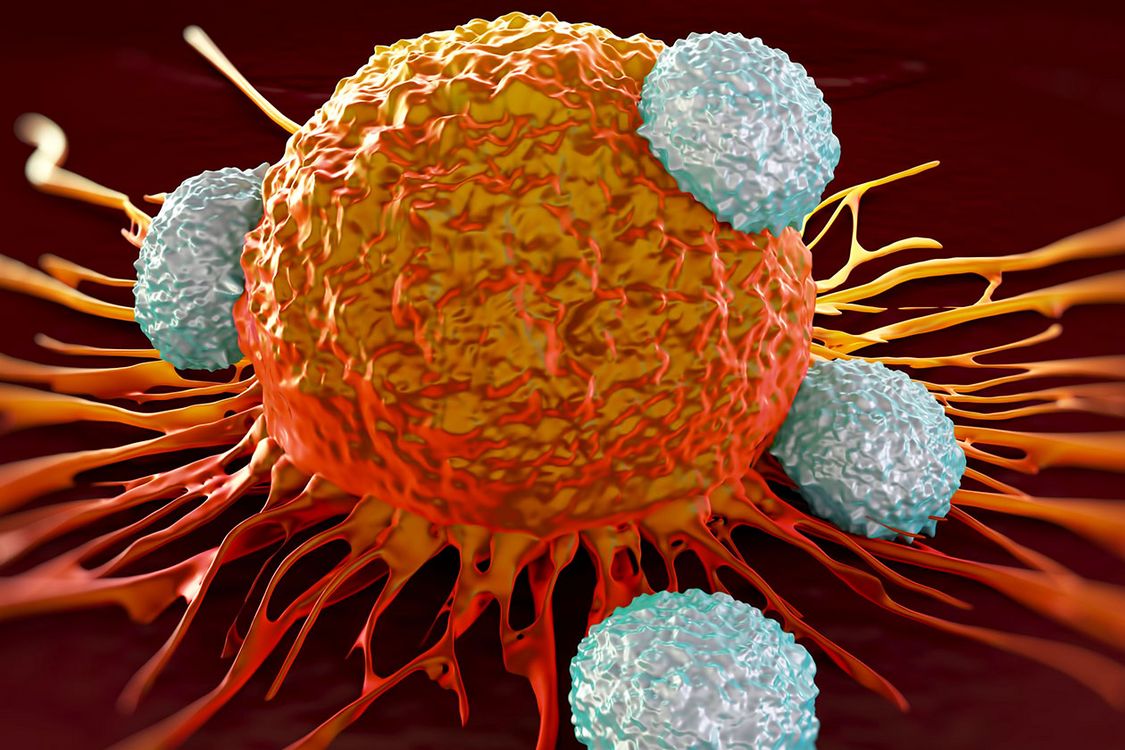CD40 stimulation drives T cell immunity in cancer

Drs. Katelyn Byrne and Robert Vonderheide from the University of Pennsylvania have discovered that CD40 stimulation along with chemotherapy causes T cell-dependent destruction of pancreatic ductal adenocarcinoma (PDA).
Using a mutant mouse model of PDA, the authors observed that treatment with Bio X Cell’s agonistic anti-CD40 antibody (clone FGK4.5) and chemotherapy alters the cancer immunity cycle away from immunosuppression and toward T cell-dependent tumor rejection. The ultimate effect is conversion of an otherwise immunologically cold tumor into one with robust T cell infiltration.
Mechanistically, anti-CD40 and chemotherapy activated myeloid cells, drove T cell function, and was required to drive the expansion of clonal effector T cell responses. Depletion of either CD4 or CD8 T cells using Bio X Cell’s anti-CD4 (clone GK1.5) or anti-CD8 (clone 2.43) antibodies prior to treatment with agonistic anti-CD40 antibody abrogated the response to therapy.
This study provided the framework for a newly opened clinical trial evaluating the administration of agonistic anti-CD40 antibodies and chemotherapy before and after surgery in PDA patients.
See the article in Cell Reports.
